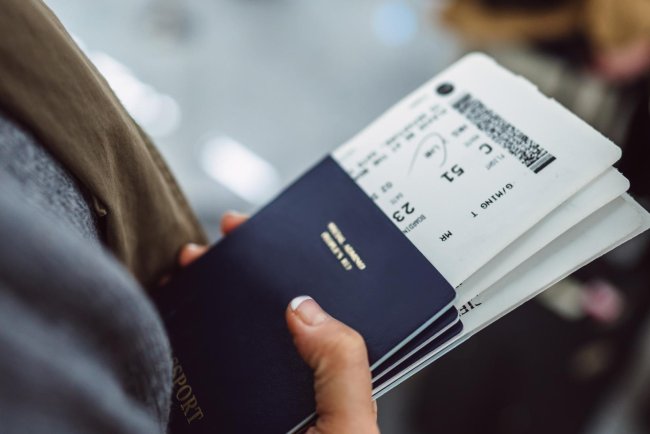1. What does travel insurance typically cover?
Travel insurance generally covers a range of incidents including medical emergencies, trip cancellations, lost or delayed baggage, and travel delays. It aims to protect travelers from financial losses related to unforeseen events during their trip.
2. Does travel insurance cover medical expenses due to war?
No, most standard travel insurance policies do not cover medical expenses resulting from war or acts of war. War-related incidents are typically excluded due to the high risk and unpredictability associated with such events.
3. Can I get coverage for terrorism in my travel insurance policy?
Yes, many standard travel insurance policies offer some degree of coverage for terrorism-related incidents. This usually includes medical expenses, trip cancellations, and travel delays caused by terrorist attacks. However, the extent of coverage varies by insurer and policy.
4. Are there policies that cover war-related risks?
Some specialized insurance policies, often referred to as war risk insurance or high-risk travel insurance, may provide coverage for war-related risks. These policies are designed for travelers heading to regions with ongoing conflicts or significant instability.
5. Why are wars generally excluded from travel insurance coverage?
Wars are often excluded due to the extreme unpredictability and extensive damage they can cause. The high risk involved makes it challenging for insurers to offer coverage at a reasonable price and manage claims effectively.
6. How can I find out if my travel insurance covers terrorism?
To determine if your policy covers terrorism, review the policy documents carefully. Look for sections related to "terrorism coverage" or "exclusions" to see the specifics of what is covered. Contacting your insurer directly for clarification is also a good idea.
7. What should I do if my destination is experiencing political instability or conflict?
If your destination is experiencing instability or conflict, review your travel insurance policy to understand your coverage. Consider purchasing specialized insurance if you are traveling to a high-risk area, and stay informed about travel advisories and government warnings.
8. Can I claim travel insurance for trip cancellation due to a terrorist attack?
Yes, if your policy includes coverage for terrorism, you may be able to claim for trip cancellation if a terrorist attack impacts your travel plans. Ensure that your policy specifically includes terrorism coverage and understand any conditions or limitations.
9. Are there travel insurance policies that cover both war and terrorism?
While rare, some travel insurance policies may offer broader coverage that includes both war and terrorism. These are typically specialized policies designed for high-risk travel. Check with insurers offering such coverage for detailed terms and conditions.
10. How do insurers decide which areas are covered for terrorism?
Insurers often base their coverage decisions on government travel advisories and warnings. If a region is under a travel warning due to terrorism, insurers may limit or exclude coverage for that area. Always check current advisories before purchasing insurance.
11. What are the common exclusions in travel insurance related to war and terrorism?
Common exclusions include injury or illness caused directly by war, property damage from war activities, and disruptions due to war or terrorism. Each policy will have specific terms, so reviewing the fine print is essential.
12. How can I ensure I have adequate coverage for travel to high-risk areas?
To ensure adequate coverage, consider purchasing specialized travel insurance designed for high-risk areas. Look for policies that explicitly cover war and terrorism, review coverage limits, and consult with an insurance expert for tailored advice.
13. Can I purchase additional coverage for terrorism if my policy doesn’t include it?
Some insurers offer optional add-ons or riders for additional terrorism coverage. Contact your insurance provider to inquire about these options and how they can enhance your existing policy.
14. How does travel insurance handle claims related to terrorism?
For terrorism-related claims, you will need to provide evidence such as medical reports, police reports, and documentation of expenses. Contact your insurer as soon as possible to report the incident and follow their instructions for filing a claim.
15. What should I do if my insurance claim for a terrorism-related incident is denied?
If your claim is denied, review the policy terms and denial reasons provided by the insurer. You can appeal the decision by providing additional evidence or clarifications. If necessary, seek assistance from a legal or insurance expert.
16. Are there specific travel insurance policies for business travelers in conflict zones?
Yes, there are travel insurance policies specifically designed for business travelers in conflict zones. These policies may offer enhanced coverage for risks associated with business activities in high-risk areas.
17. Does travel insurance cover losses due to political instability or civil unrest?
Coverage for political instability or civil unrest is often limited. While some policies may cover trip cancellations or delays due to such events, injury or property damage might be excluded. Review your policy details for specific coverage.
18. How can I stay informed about potential risks at my travel destination?
Stay informed by checking travel advisories from government agencies, such as the U.S. Department of State or the Foreign Office in the UK. Monitor news updates and consult with travel experts for the latest information on potential risks.
19. Are there any travel insurance policies that cover non-traditional risks like cyberattacks?
Some modern travel insurance policies are starting to include coverage for non-traditional risks such as cyberattacks. Check with insurers to see if they offer such coverage and understand the terms and conditions.
20. What steps should I take if I need to make a claim for a terrorism-related incident?
To make a claim, gather all relevant documentation including medical records, police reports, and proof of expenses. Notify your insurance provider promptly, follow their claim process, and keep detailed records of all communications and submissions.




















